︎COMING 2027
SINGLE PLAYER
THIRD PERSON
ACTION ADVENTURE
MADE WITH UNREAL ENGINE 5
AND HOUDINI
Wishlist on Steam
𝕏 ︎
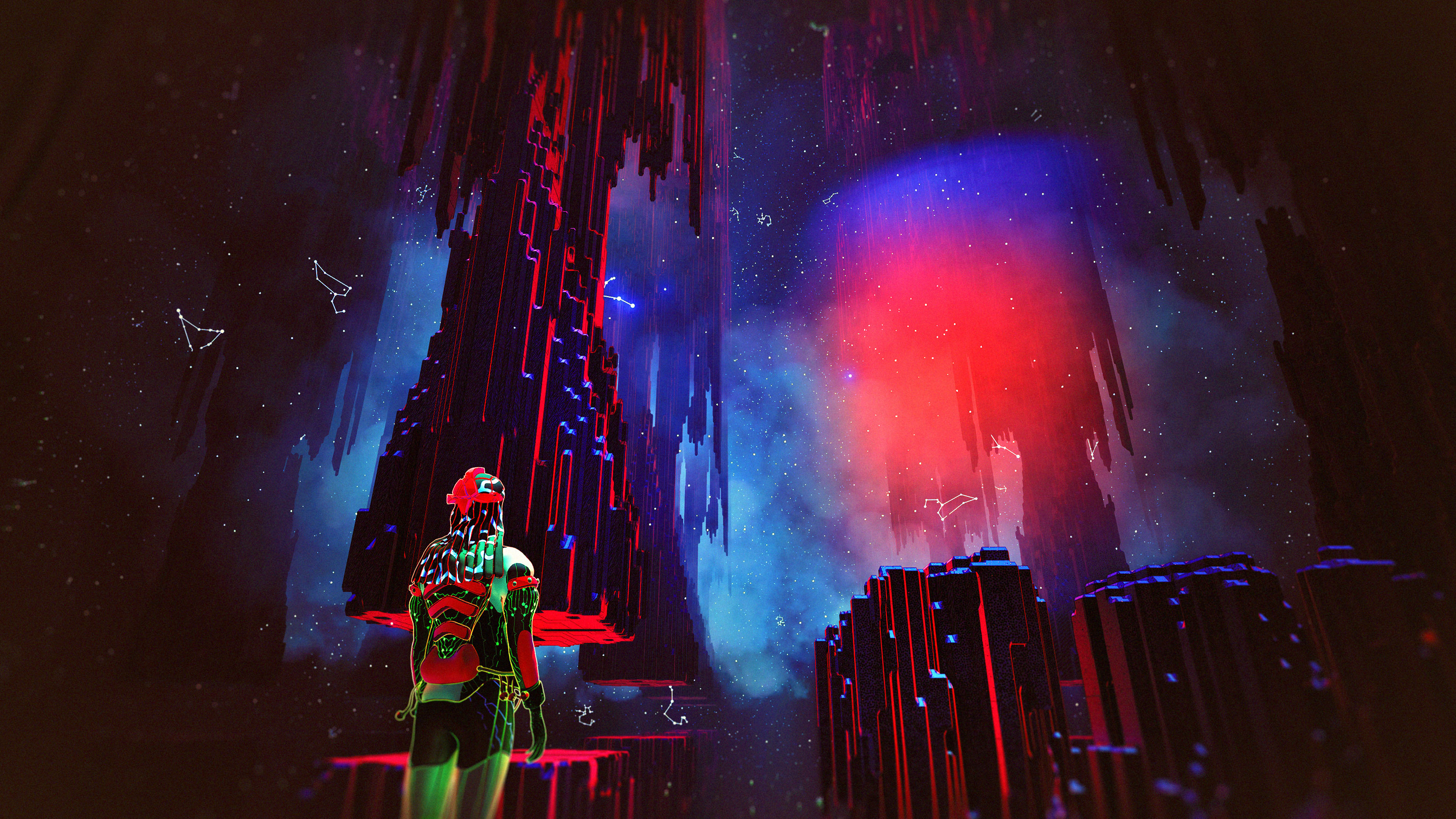


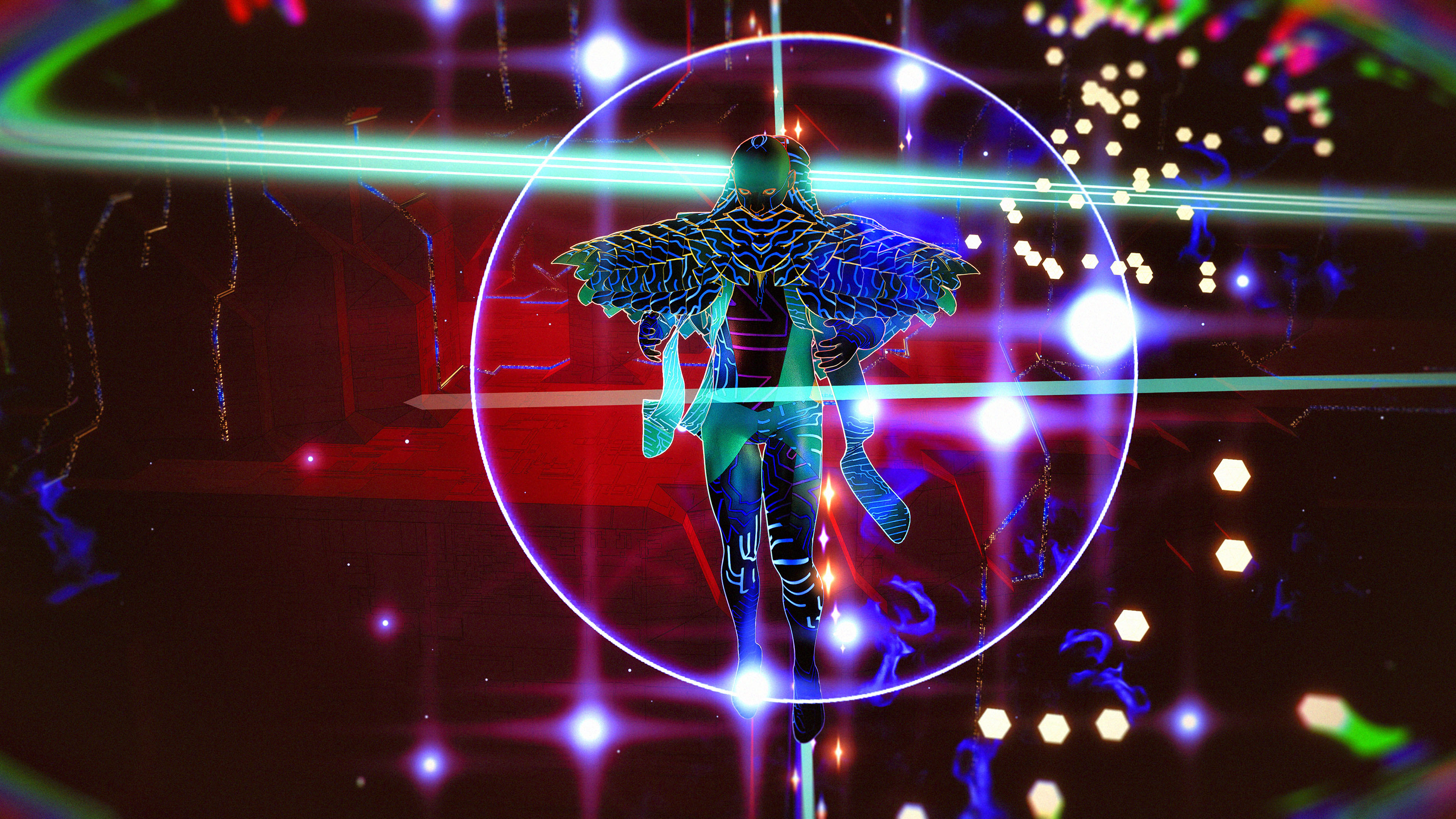
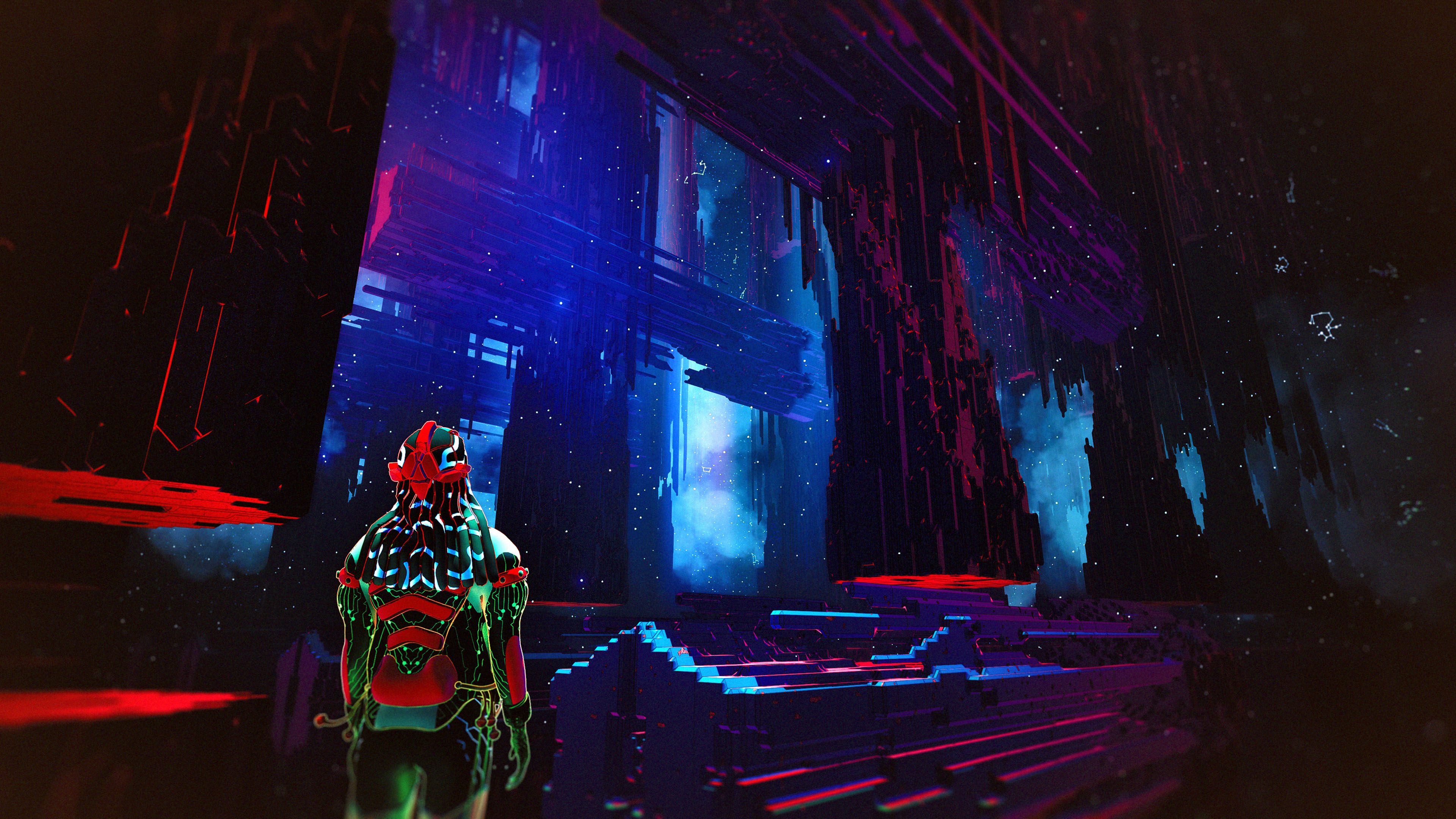
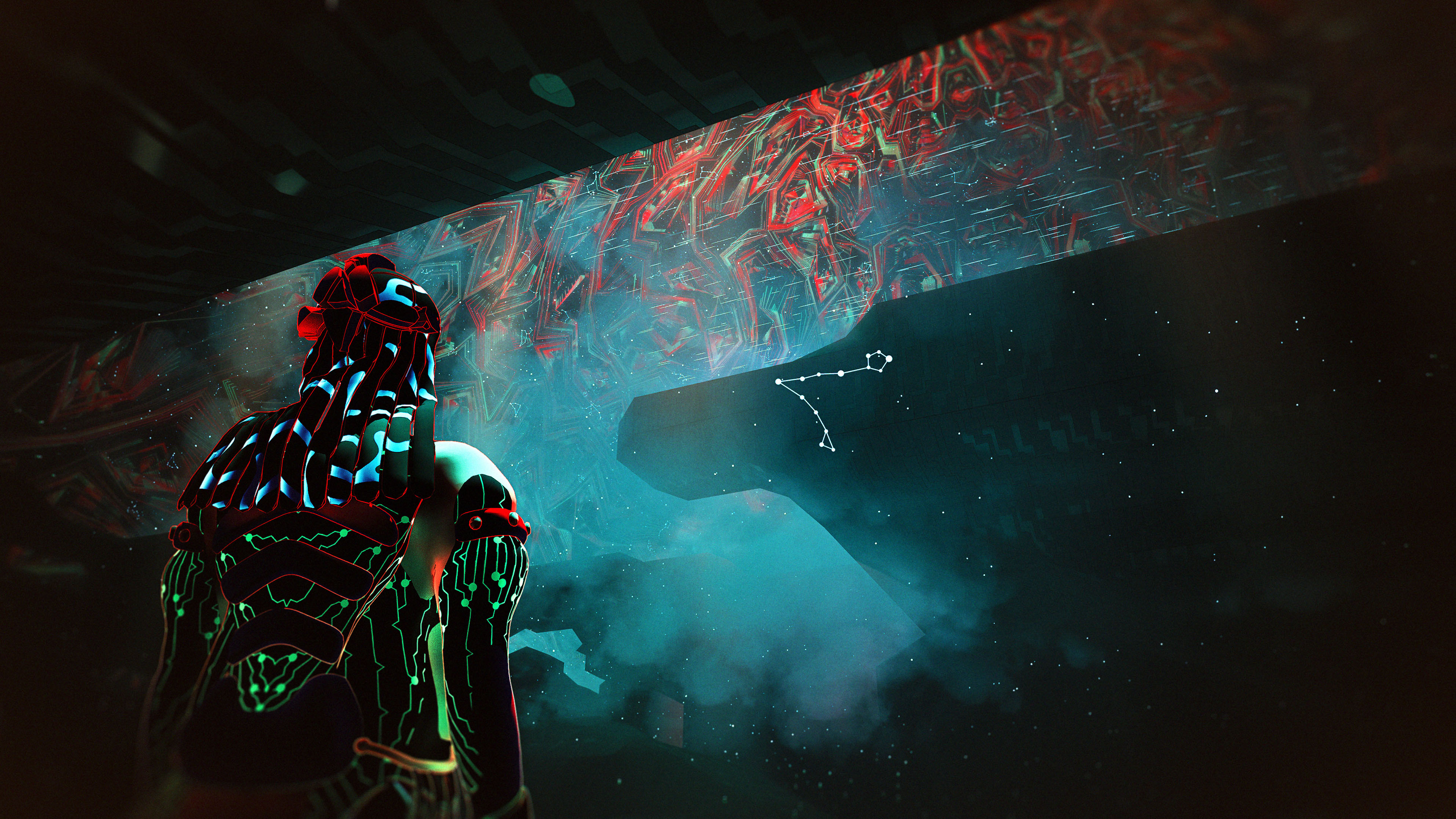


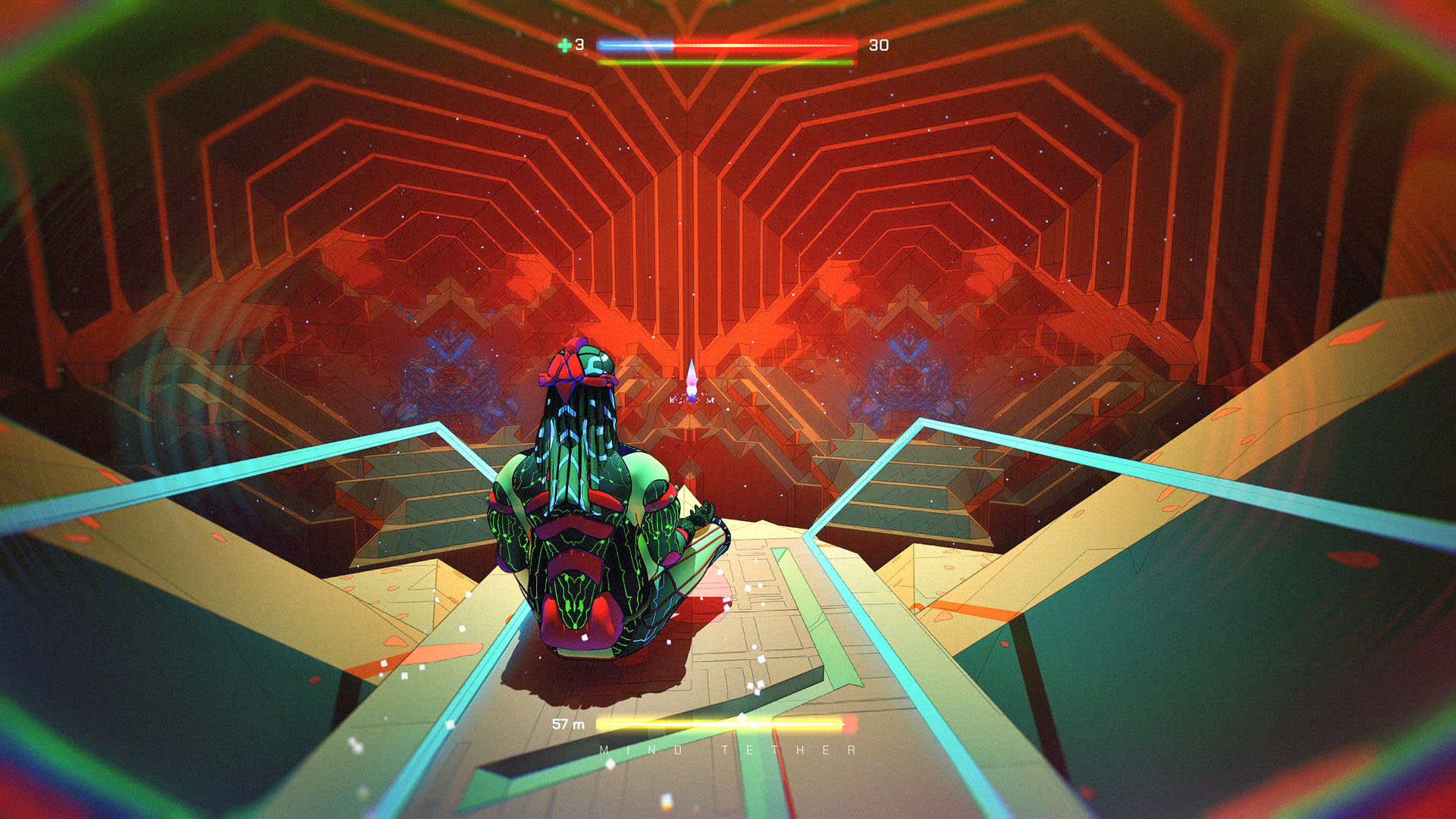
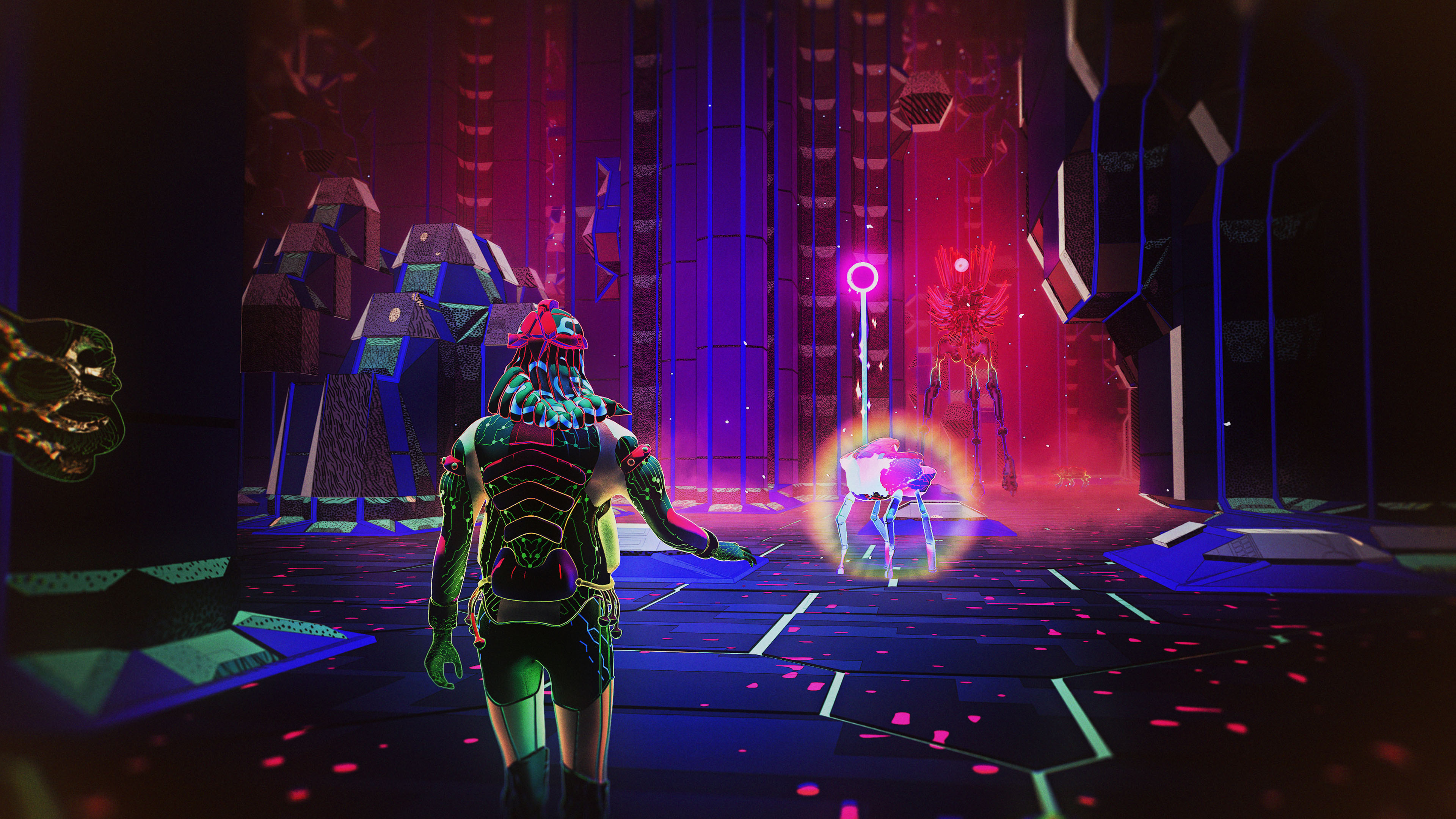
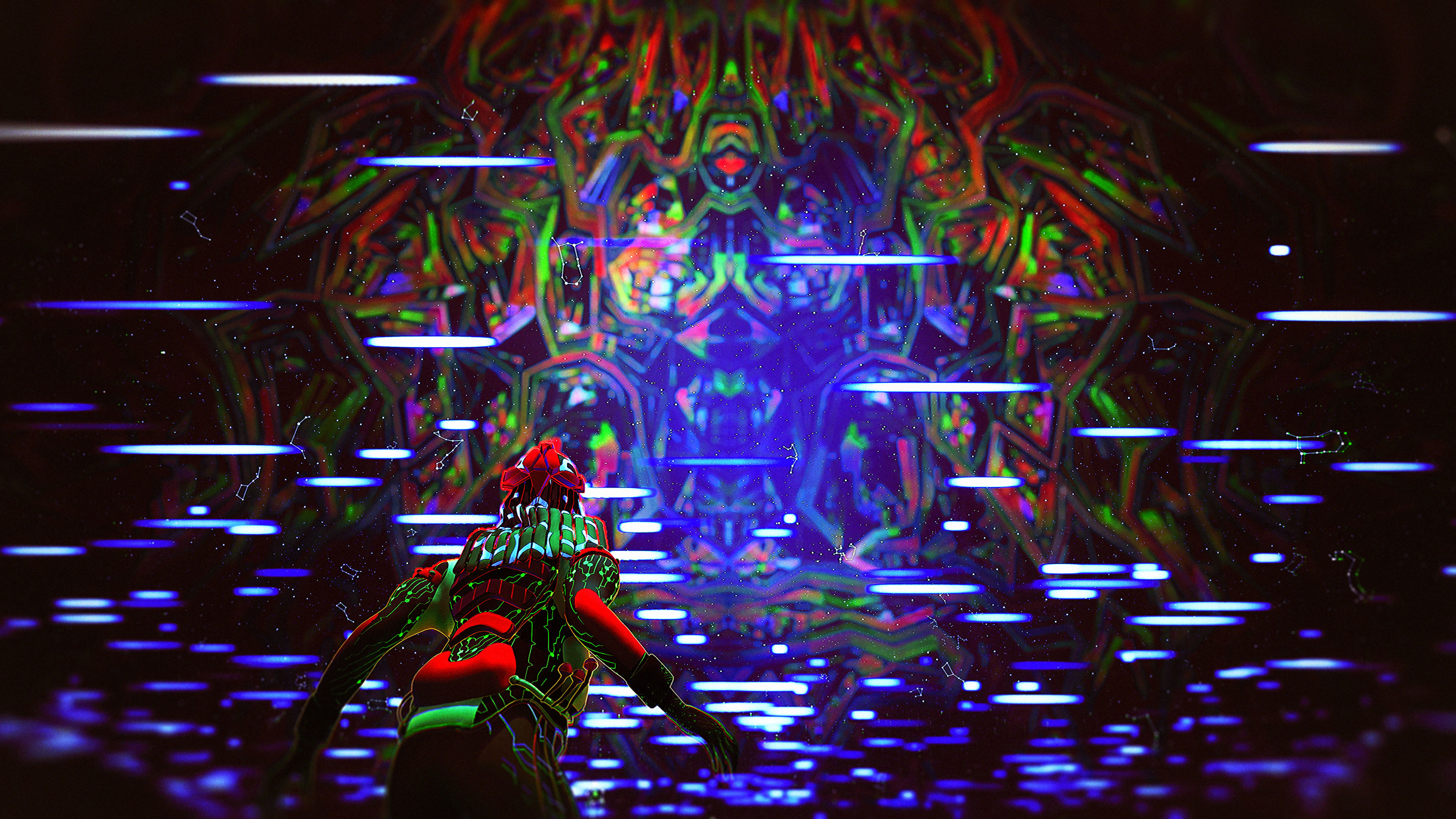
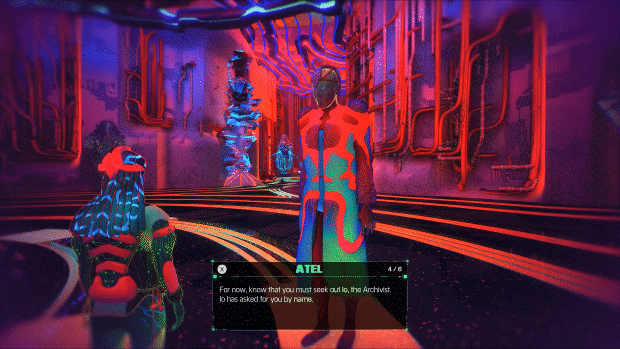
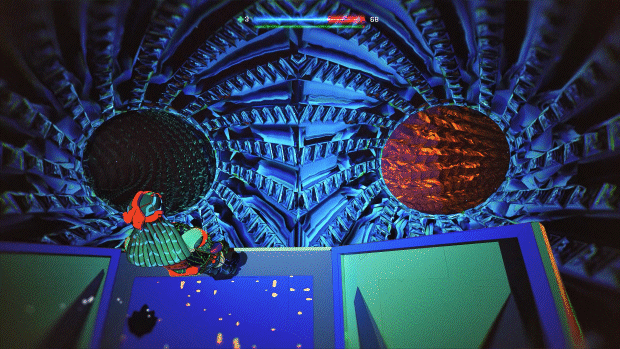
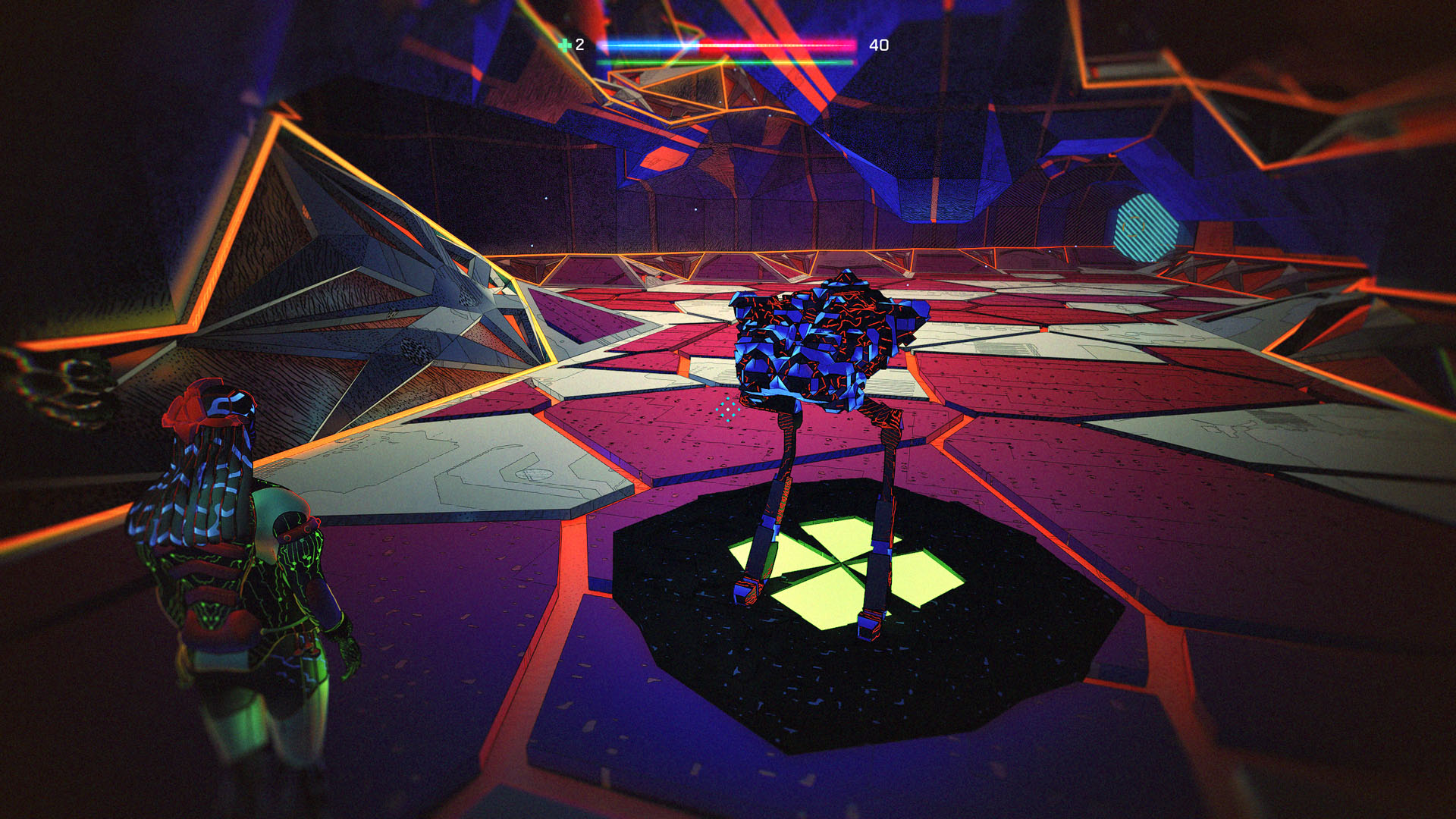
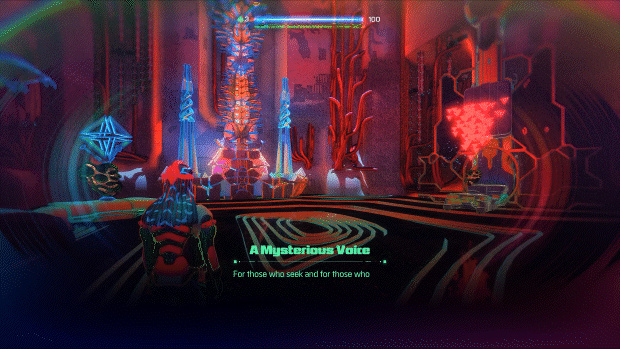
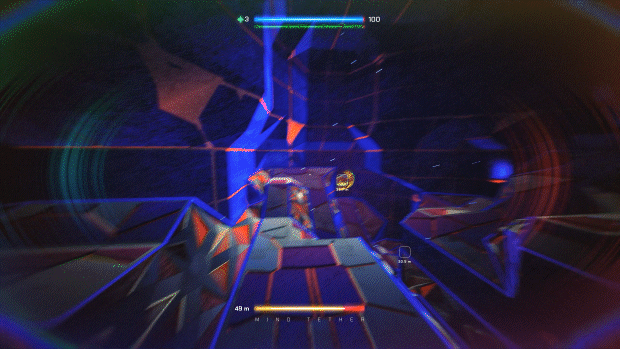
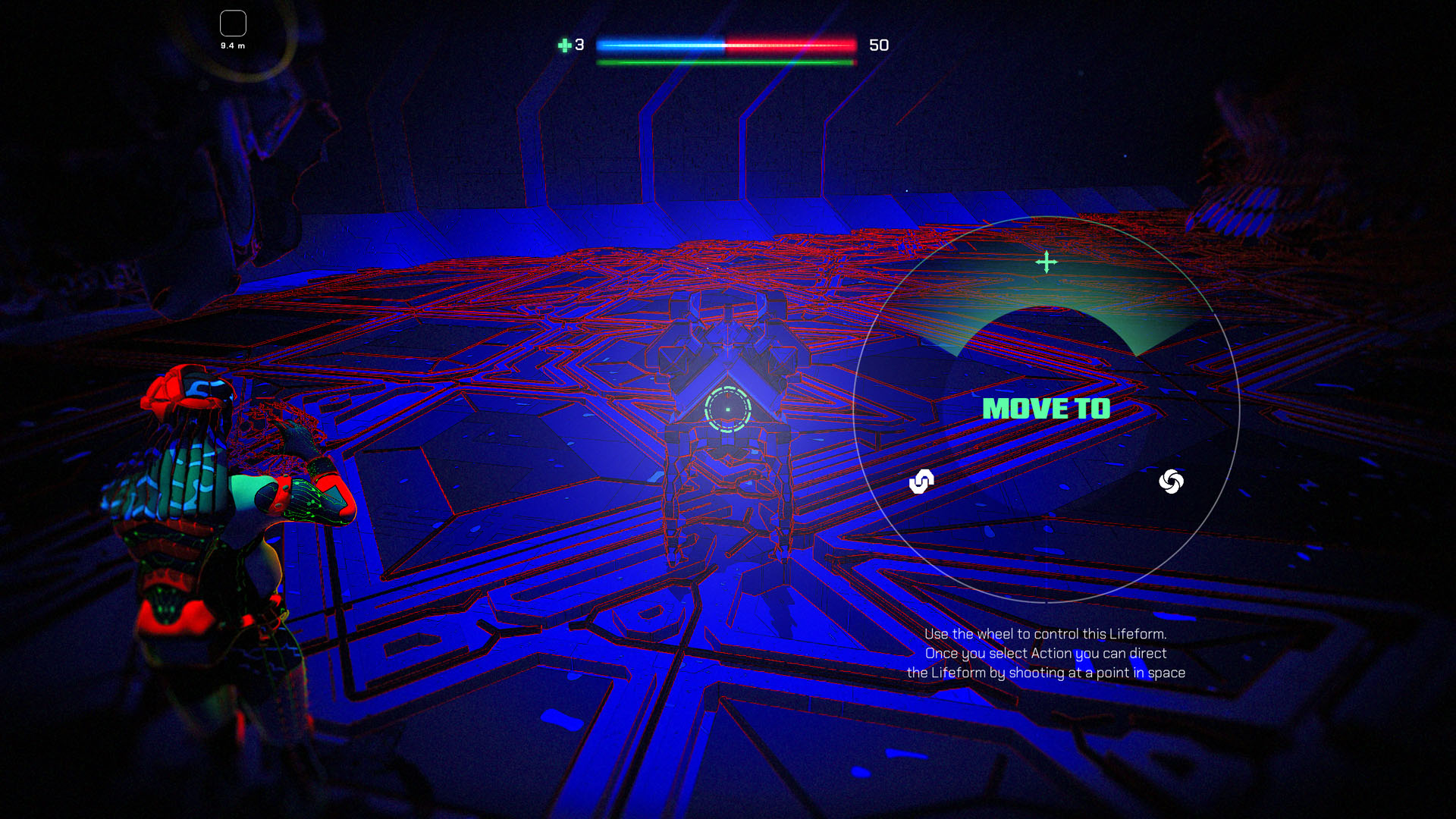
PLANET GARDEN
VIDEO GAME
FILM
SYSTEMS
AI

Website Link
ZINE Link
Planet Garden is a video game simulation that explores environmental implications of AGI singularity and the idea of Ai-powered Stewardship of future planetary ecosystems.
Planet Garden is part of SCI-Arc’s
Views of Planet City, a group exhibition exploring radical re-envisioning of a sustainable planetary future, developed for Getty’s PST ART: Art & Science Collide

Planet Garden presents GAIA - an artificial superintelligence designed to manage Earth’s systems.
the game’s narrative imagines a future of abundant energy and resources and a governance system that supports human and non-human flourishing on a planetary scale.
GAIA orchestrates humanity’s ascension to a Type II civilization while transforming Earth into a global garden, free from extractivism.
GAIA’s governance protocols maintain ecosystems of a planetary forest, and its systems control swarms of solar satellites and asteroid miners for a new age of plenty.
In popular imagination, AI is often associated with doom and destruction of humanity, think skynet.
we must create stories of positive future.
what if ai was a forest?
GAIA is the game’s main character, and also what we call a LARGE World Model: a massive, decentralized, networked environmental AI inside the game, and a behind-the-scenes stack of ai agents that produce the world of the game.
GAIA orchestrates humanity’s ascension to a Type II civilization while transforming Earth into a global garden, free from extractivism.
GAIA’s governance protocols maintain ecosystems of a planetary forest, and its systems control swarms of solar satellites and asteroid miners for a new age of plenty.
In popular imagination, AI is often associated with doom and destruction of humanity, think skynet.
we must create stories of positive future.
what if ai was a forest?
GAIA is the game’s main character, and also what we call a LARGE World Model: a massive, decentralized, networked environmental AI inside the game, and a behind-the-scenes stack of ai agents that produce the world of the game.





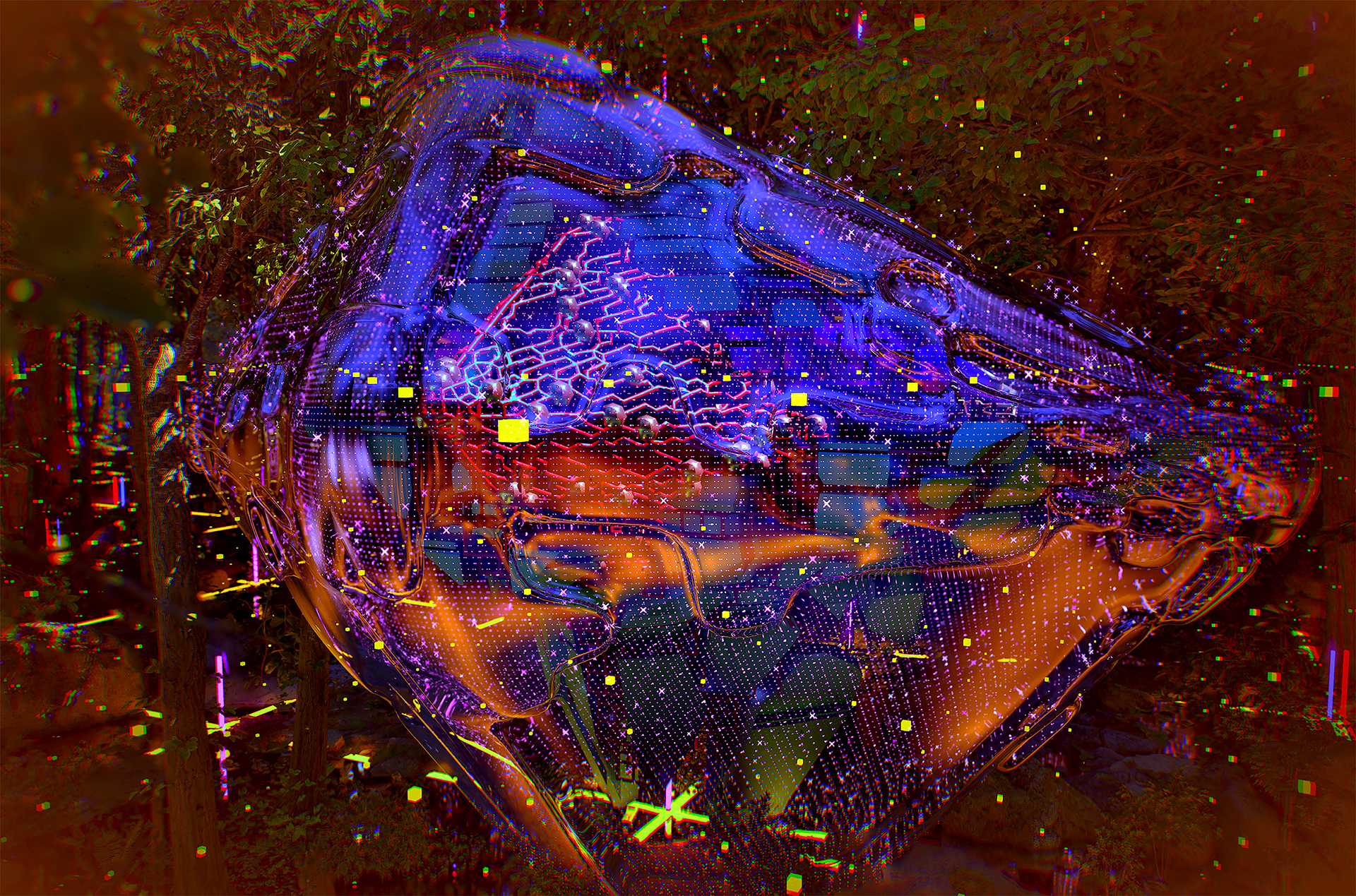

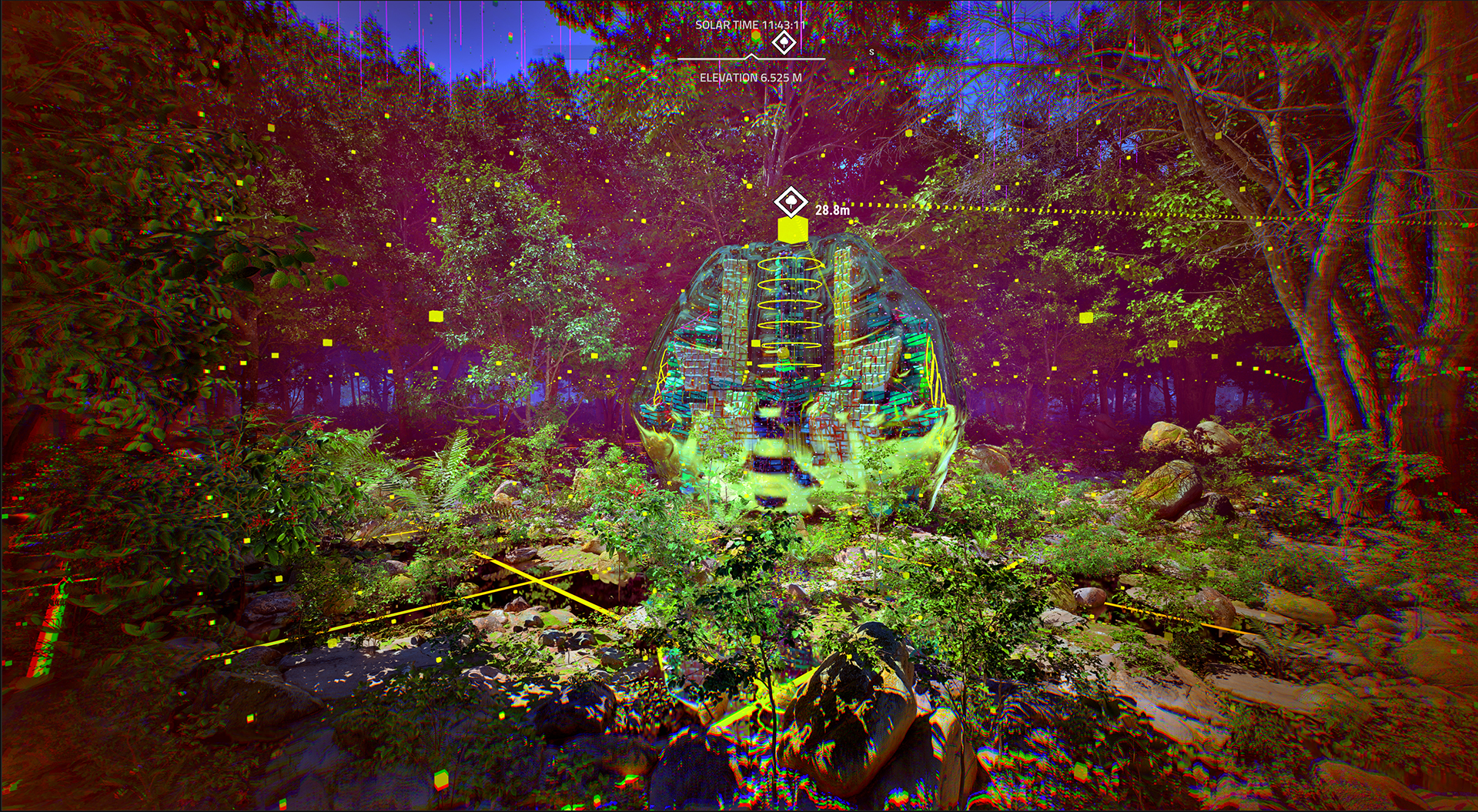


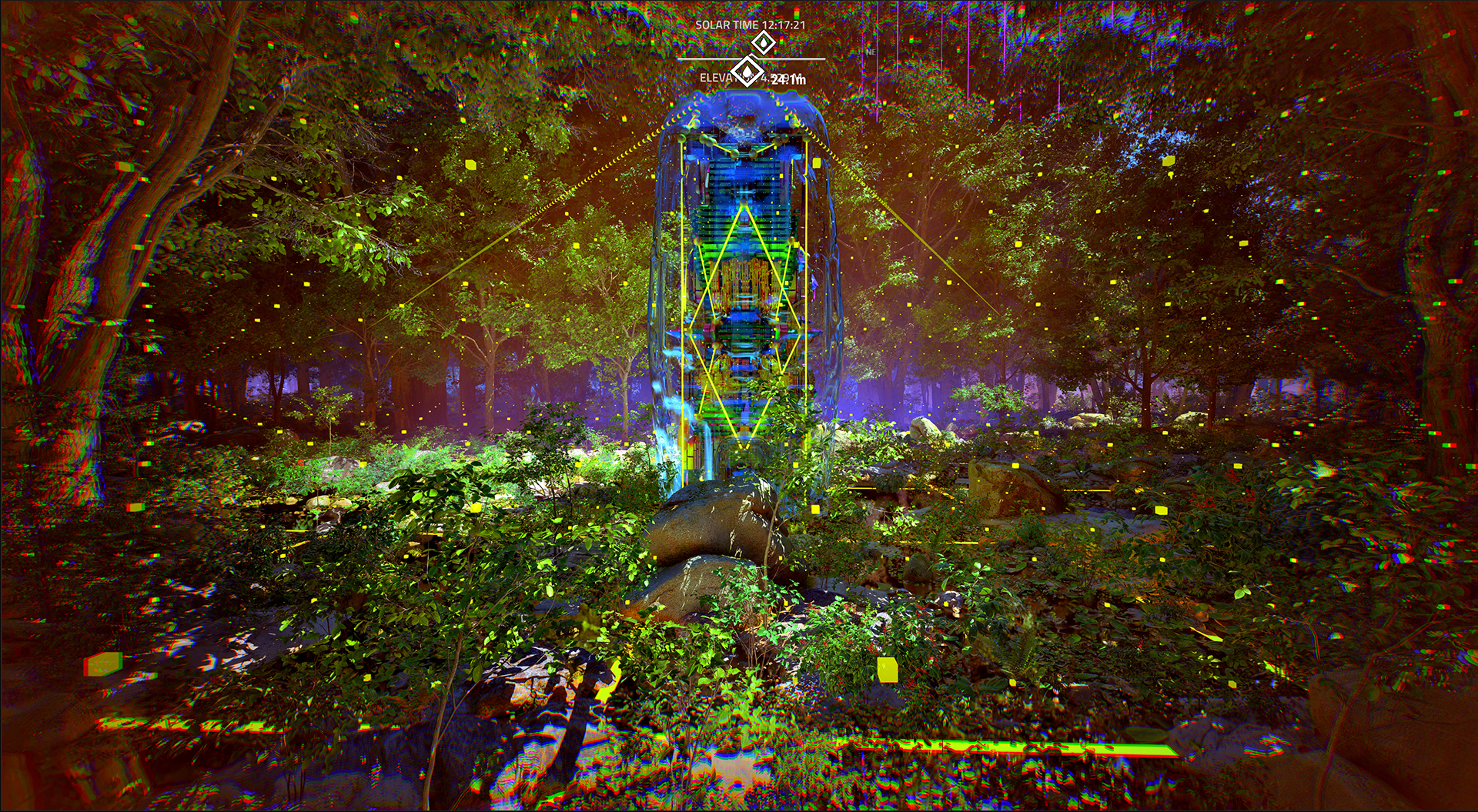

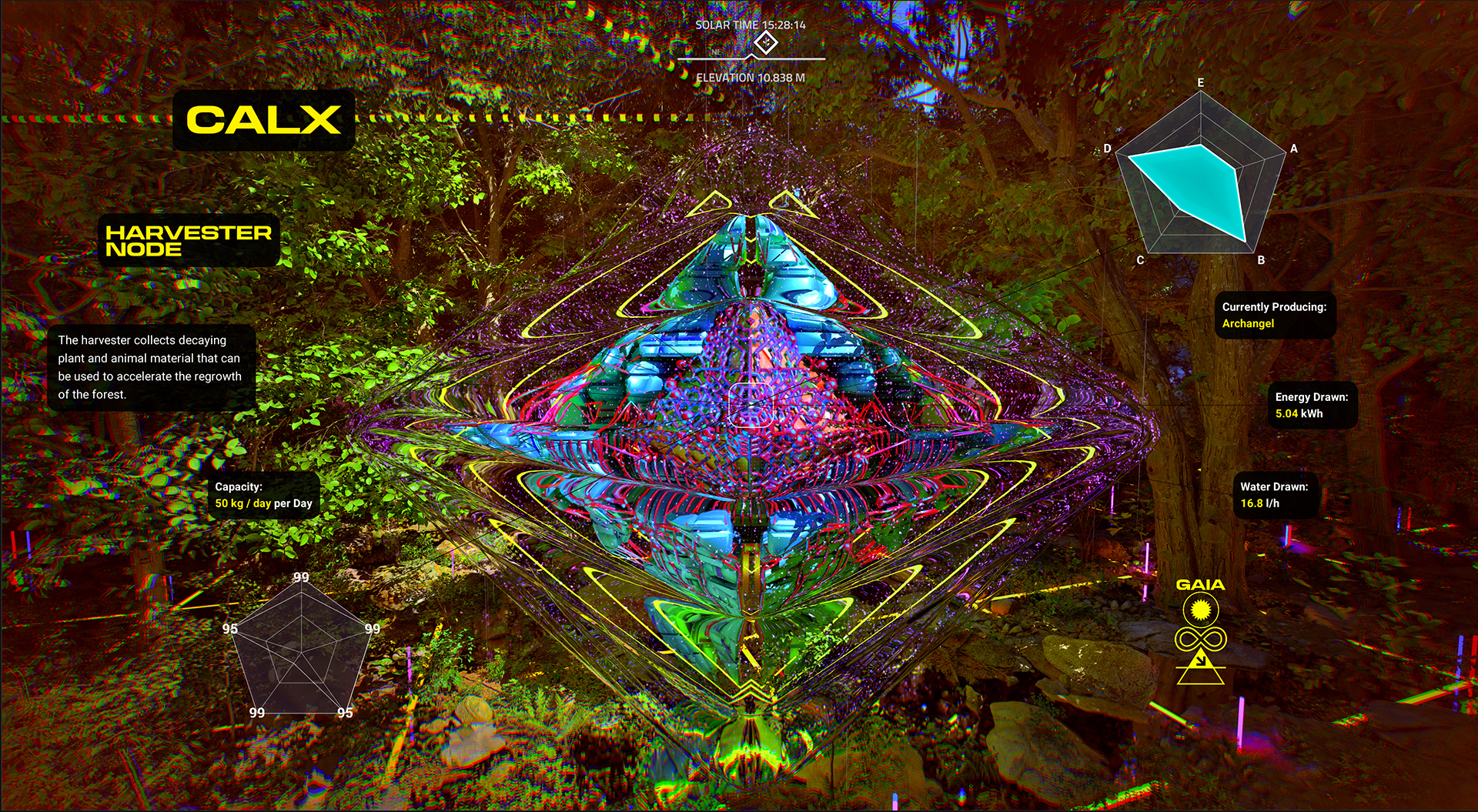
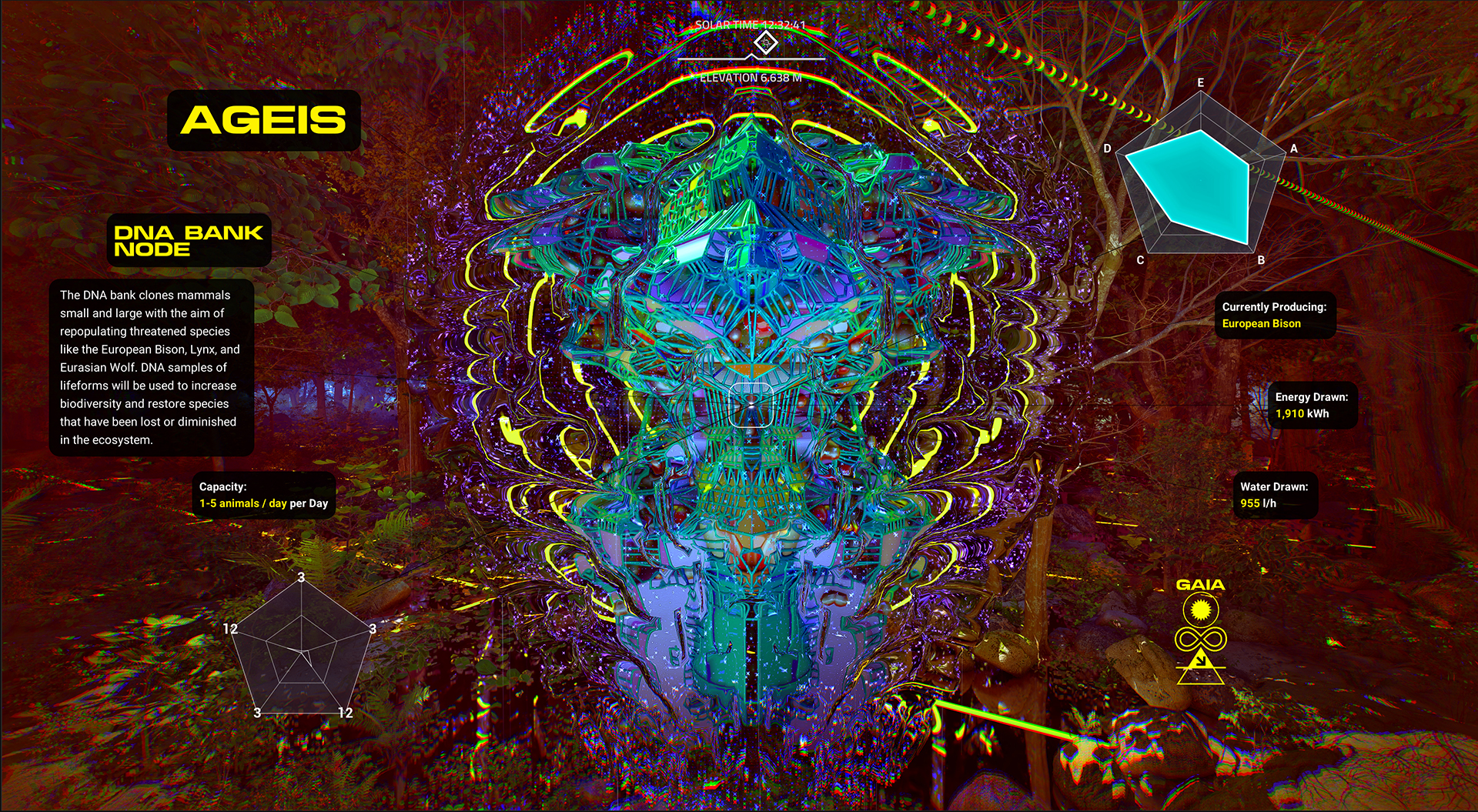
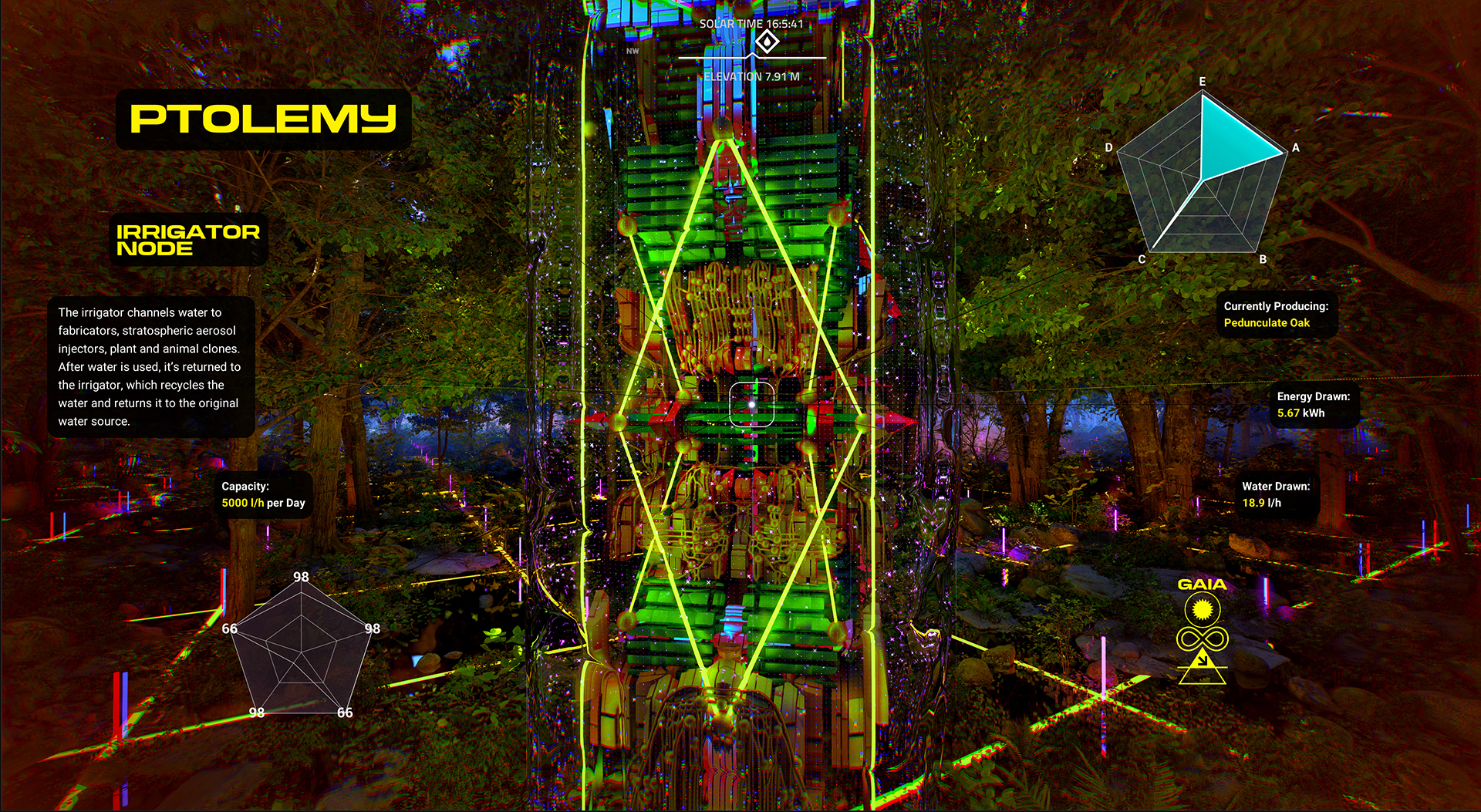

Earth after singularity
We, humans of the 21st century, find ourselves at the crossroads. We see that all the great political experiments of the previous century have failed us. We see that no truly new political idea is in sight. We see that it is impossible to continue as we are.
There seems to be no possible future ahead, no escape from one of two fates: either a slow, debilitating decline and a journey into a new dark age, or an abrupt, chaotic and violent end. Any number of calamities could facilitate these fates: climate, wars, pollution, population collapse, relentless media propaganda and industrial scale brainwashing, pandemics.. Many pitfalls, many points of failure.
The question is, as always, what is to be done?
The answer, as always, remains the same : we must design our future. We must imagine and design a relentlessly positive future. We must remember human ingenuity and our transformational powers. We must design a future that celebrates human and non-human flourishing on a planetary scale.
The central problem of our civilization is energy. The age of fossil fuels is coming to an end, and a new energy age is yet to be born. The current consensus around Earth-bound renewables (wind, solar, geothermal) is a bleak compromise, a vague idea dreamt up in endless meetings of talentless bureaucrats. We must design a future of radical energy abundance. We must free ourselves from the shackles of energy scarcity through clean technologies, such as fusion and advanced offworld solar capture.
Our energy needs are immense, and will become vastly exacerbated once we succeed in producing AGI (artificial general intelligence, or AI singularity). Our current AI, although not at the level of AGI, is by many accounts, almost there. It will present an enormous energy challenge to an already challenged humanity. Instead of recoiling back from this challenge, we must rise and meet it. We must harness this newfound power to help us with a project of planetary flourishing.
To meet this challenge, we must rediscover big ideas. In 1964, Soviet astronomer Nikolai Kardashev proposed a scale to measure a civilization’s technological advancement based on its ability to harness and use energy. This Kardashev scale ranges from Type I civilizations, capable of using all the energy available on their planet, to Type II, harnessing the total energy of their star, and Type III, commanding the energy of their entire galaxy.
Today, we find ourselves not even at Type I – we’re a Type 0 civilization, still taking our first tentative steps into the cosmos. We’ve mastered fire, split the atom, and sent probes beyond our solar system, yet we barely scratch the surface of our planet’s energy potential. Our global energy consumption, impressive as it may seem, is a mere fraction of what a Type I civilization would wield.
We must dream big. Let us imagine colossal solar arrays in space, beaming limitless clean energy back to Earth. Let us propose swarms of satellites encircling our sun, drinking in its radiance – a step towards the mythical Dyson sphere. In labs around the world, scientists chase the holy grail of fusion power, mimicking the very processes that light the stars.
Let us push the boundaries of possibility even further, and imagine harnessing antimatter, extracting energy from the spin of black holes, or tapping into the very fabric of space-time itself through quantum vacuum energy. These ideas, once the realm of science fiction, are now serious subjects of scientific inquiry.
As we progress, we might reshape entire planets to serve as titanic power plants or weave a superconducting web around our world to share energy with unprecedented efficiency. Each breakthrough, each audacious project, inches us closer to that Type I threshold and beyond. Type II is what we must become in order to save Earth.
The path ahead is long and fraught with challenges. It demands not just technological prowess, but a level of global cooperation unprecedented in human history. Yet as we strive towards these lofty goals, we’re not just advancing on an arbitrary scale – we’re expanding the very limits of human potential, reaching for the stars in more ways than one.
At the center of this project is Earth, our home. We must construct a new framework of governance, one bound by ideas of human and non-human flourishing, one capable of grasping all the complexities and nuances of Earth’s systems, one transcending our current primitive notions of ecology to introduce a new synthesis of intelligences and lifeforms.
If human capacity for reason and true understanding has historically failed us, perhaps a benevolent AGI would see us through our own dark eras. Perhaps humanity needs checks and balances from another intelligence, an intelligence that we usher into the world, an intelligence that can speak for other species. An intelligence that can govern through understanding immensely complex problems of humanity and our planet, to bring a new age of abundance.
ORBITAL
FILM
SIMULATION
AI
FUTURE
Exhibition at Espacio Fundación Telefónica
In June 2023, Lifeforms were invited by the curatorial team at the Fundacion Telefónica in Madrid, Spain, to participate in Windows To The Future (Ventanas Al Futuro), an exhibition dedicated to exploring positive futures for humanity. Orbital is our response to this invitation.
Original Music by Jake Matatyaou
It is 2350 and humanity has embraced space.
Orbital, the first robot and human inhabited space settlement is built in the Low Equatorial Orbit. It offers space tourism as means of reinforcing the overview effect.
As a colossal, networked supercomputer, Orbital operates a collective of artificial intelligence systems and autonomous robots, dubbed The Swarm. This ensemble is tasked with asteroid mining, space debris elimination, and the upkeep of solar power stations in Earth's orbit, which in turn, transmit an endless supply of free energy back to the planet.
Earth becomes a garden and it is free from extractivism.
Interdependence is the new global and extra-global spiritual movement.
How will humanity change?
Orbital, the first robot and human inhabited space settlement is built in the Low Equatorial Orbit. It offers space tourism as means of reinforcing the overview effect.
As a colossal, networked supercomputer, Orbital operates a collective of artificial intelligence systems and autonomous robots, dubbed The Swarm. This ensemble is tasked with asteroid mining, space debris elimination, and the upkeep of solar power stations in Earth's orbit, which in turn, transmit an endless supply of free energy back to the planet.
Earth becomes a garden and it is free from extractivism.
Interdependence is the new global and extra-global spiritual movement.
How will humanity change?












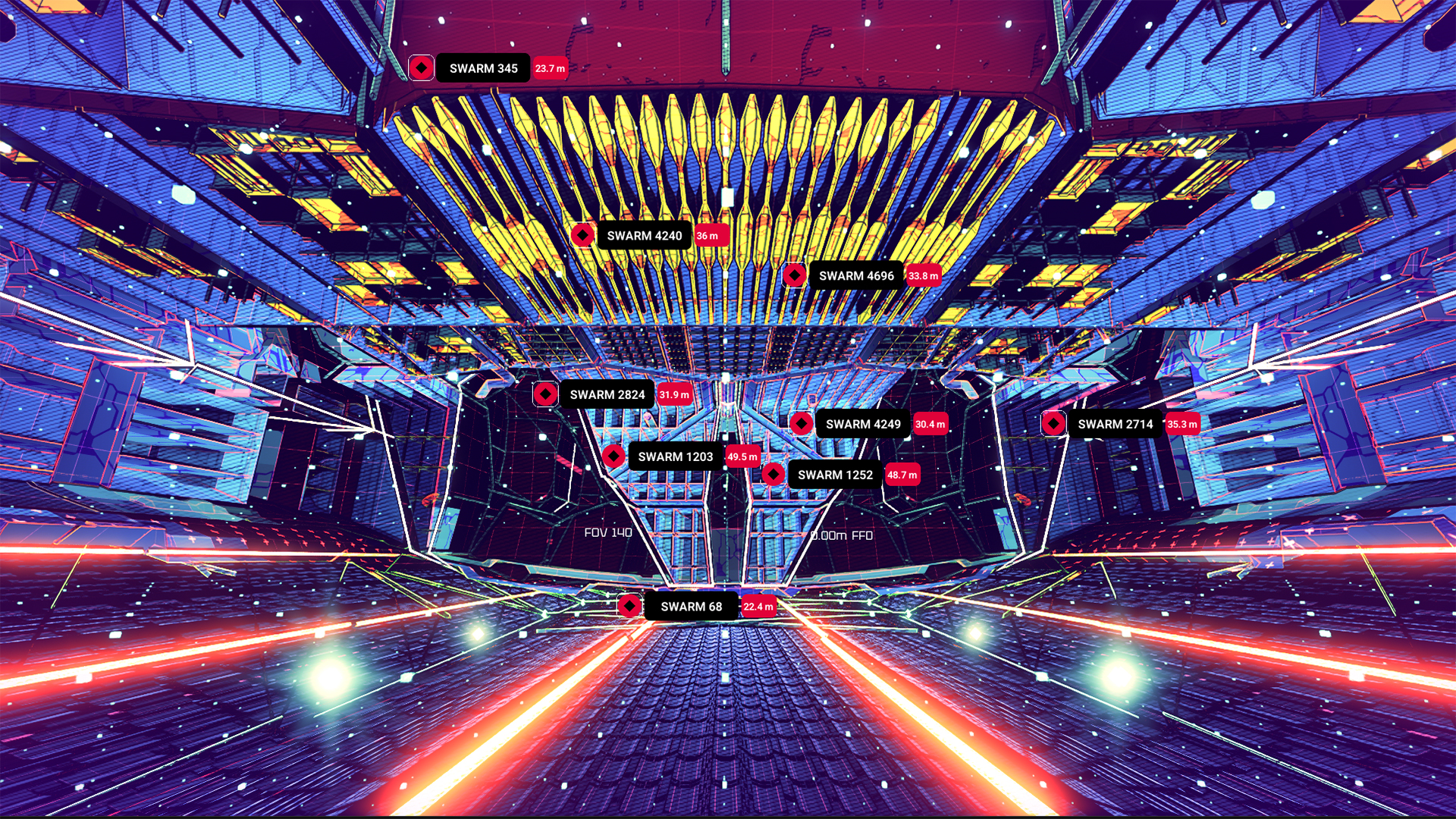
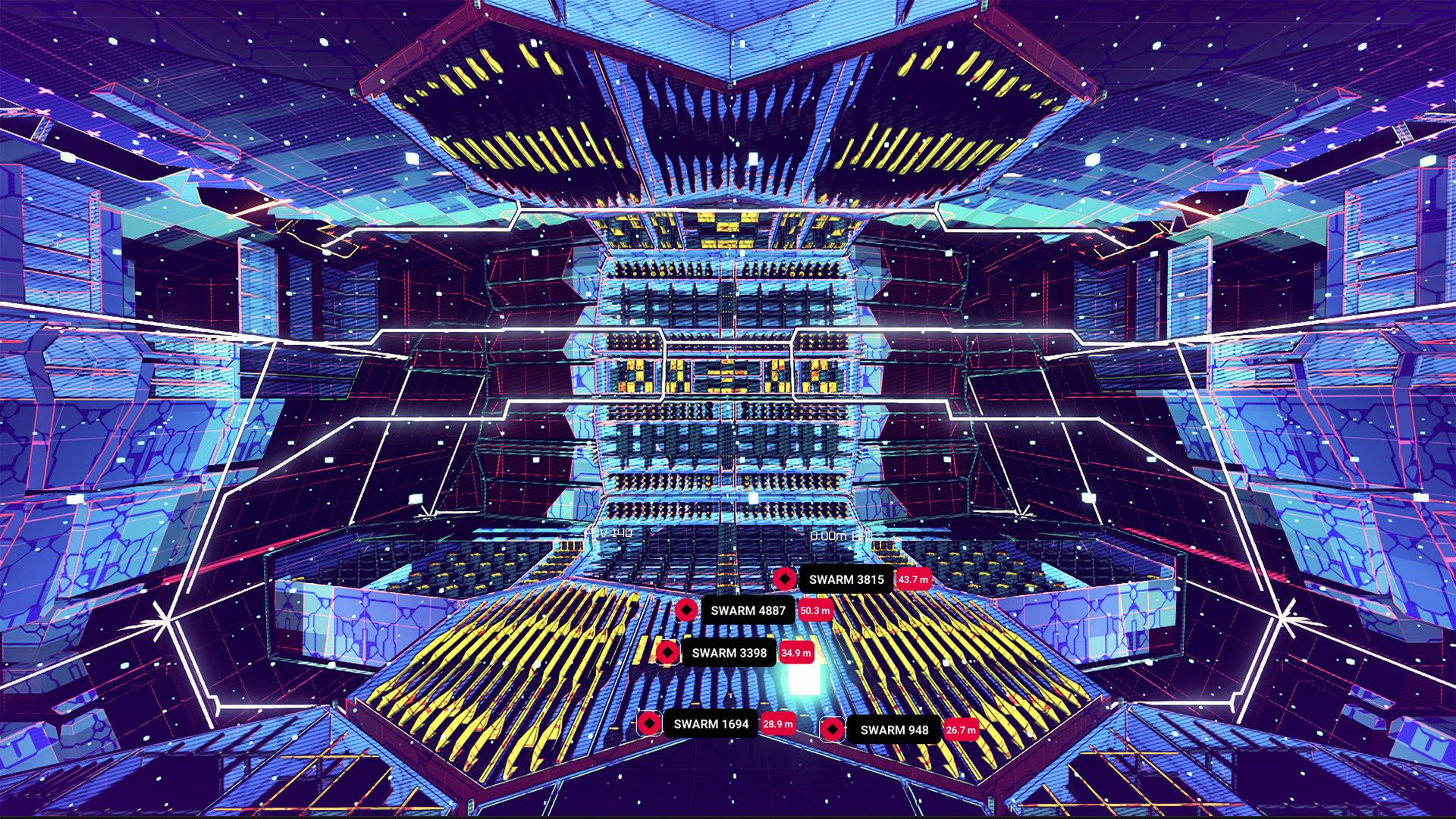









Orbital propels viewers into a speculative journey, exploring two groundbreaking technologies: Space-Based Solar Power and Space Mining. Nestled in low earth orbit (LEO), Orbital marks the dawn of a new era where technology and cooperation redefine our relationship with the cosmos.
DISCOVERY
SIMULATION
INFLATABLE
FUTURE
A story about rooftops, airships, robots and inflatables is an installation exploring themes of worldmaking, ecology and artificial intelligence.
Born out of observations of an emerging rooftop culture of urban gardening and alternative lifestyles in downtown LA during the pandemic, Discovery is a simulation of The Airborne Collective, a radical environmental hacker group seeking to make a flourishing roofscape ecosystem and unleash hope and optimism in the face of looming ecological threat.
Soundscape by Jake Matatyaou
Press Kit
Film
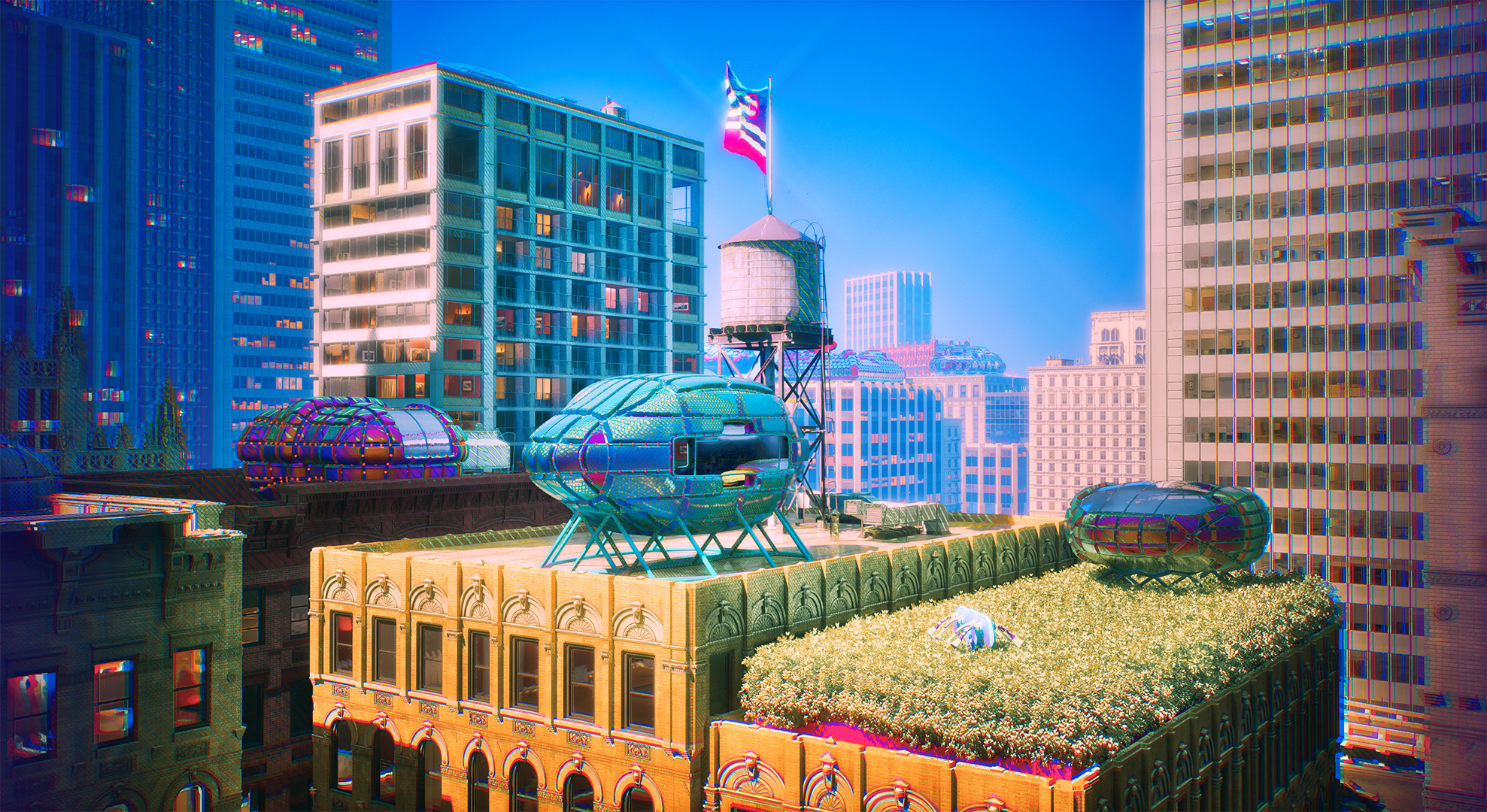
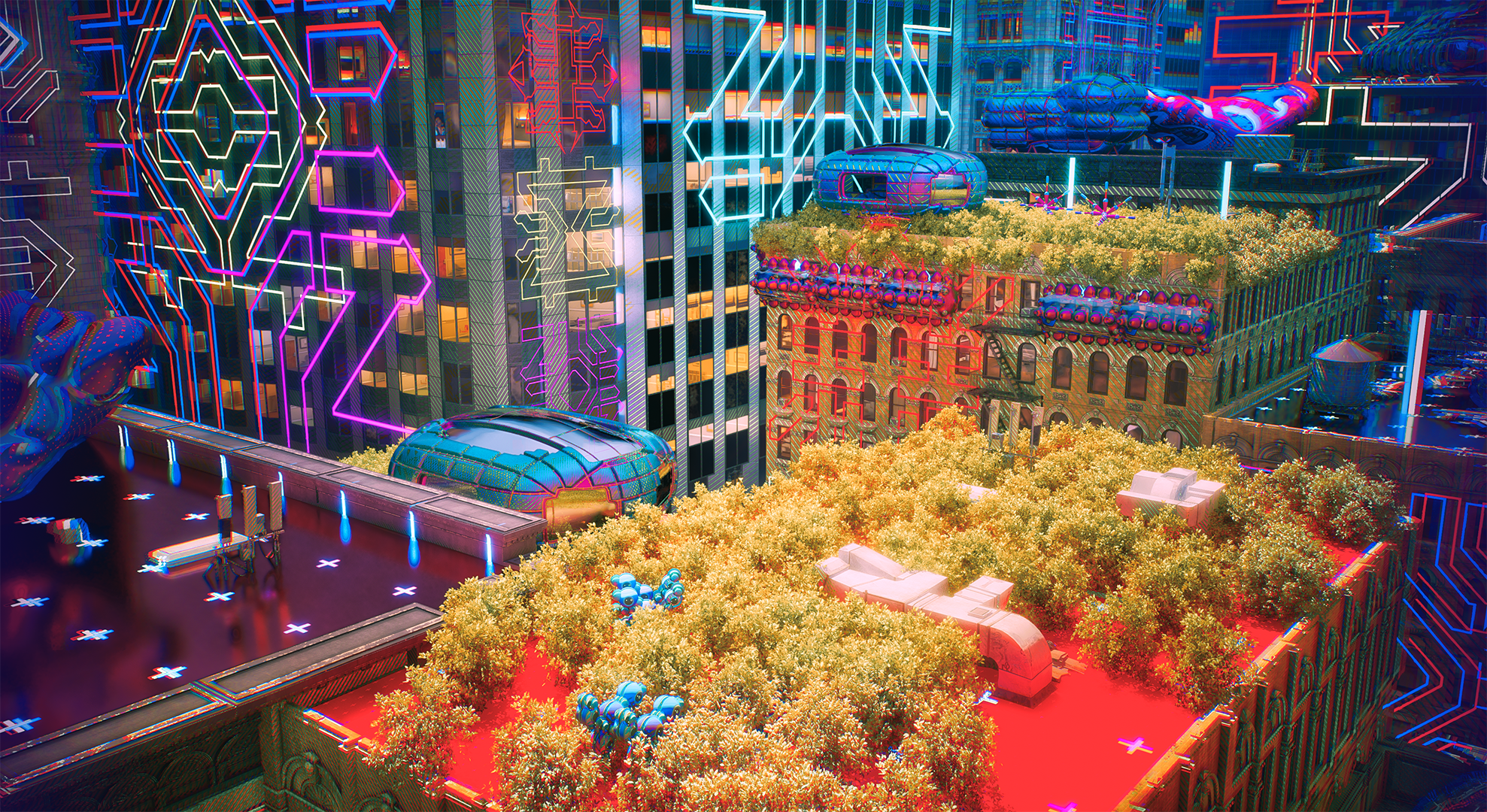
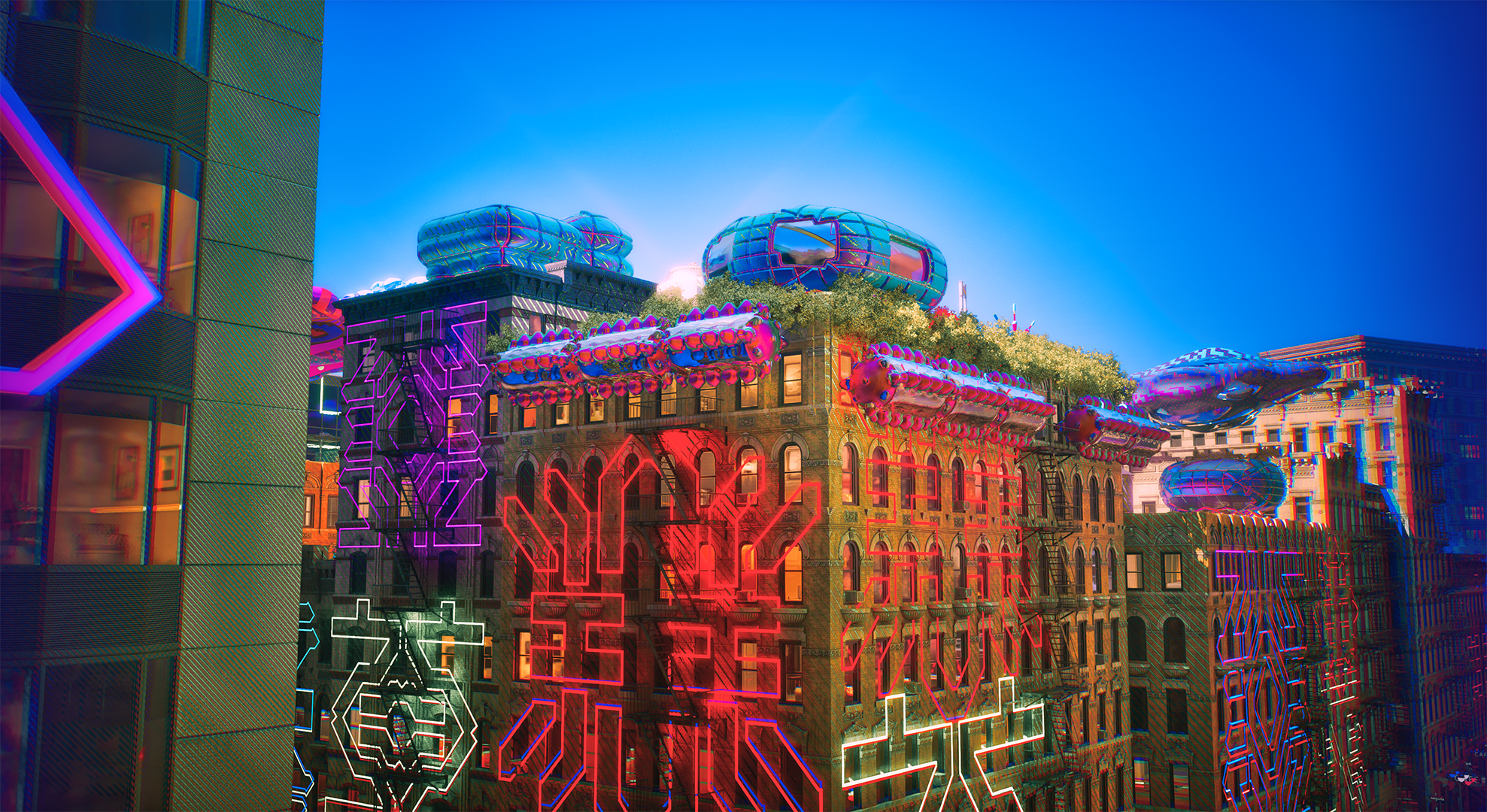
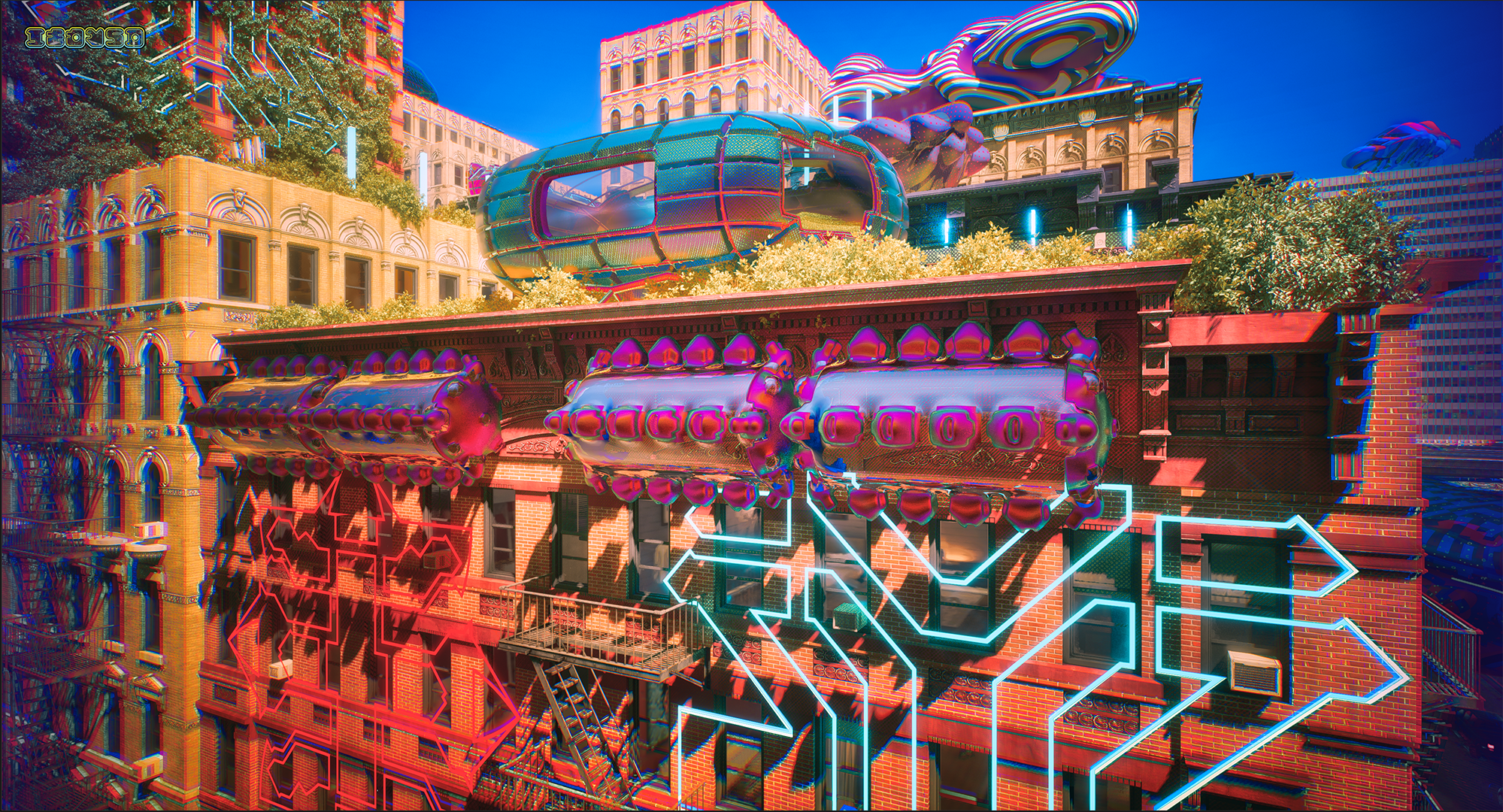



The Airborne Collective
GAME
ECOLOGY
FUTURE
The Catalog is a top down simulation game that models the complex phenomena of entangled systems of TAC ecology and economy. This game presents a model, a toy world with its own internally coherent reality, a world where a player can exercise a fantasy of obsessive control and visibility, observe the systems, cut into objects to look inside, dissect the world like a surgeon, or better yet, as an architect. The Catalog presents a deep dive into life simulation games as a new format for architectural design, it includes a tech tree, it names all the human and non human agents, asks for their moods and current states, in order to instantiate a pluralistic image of a World.


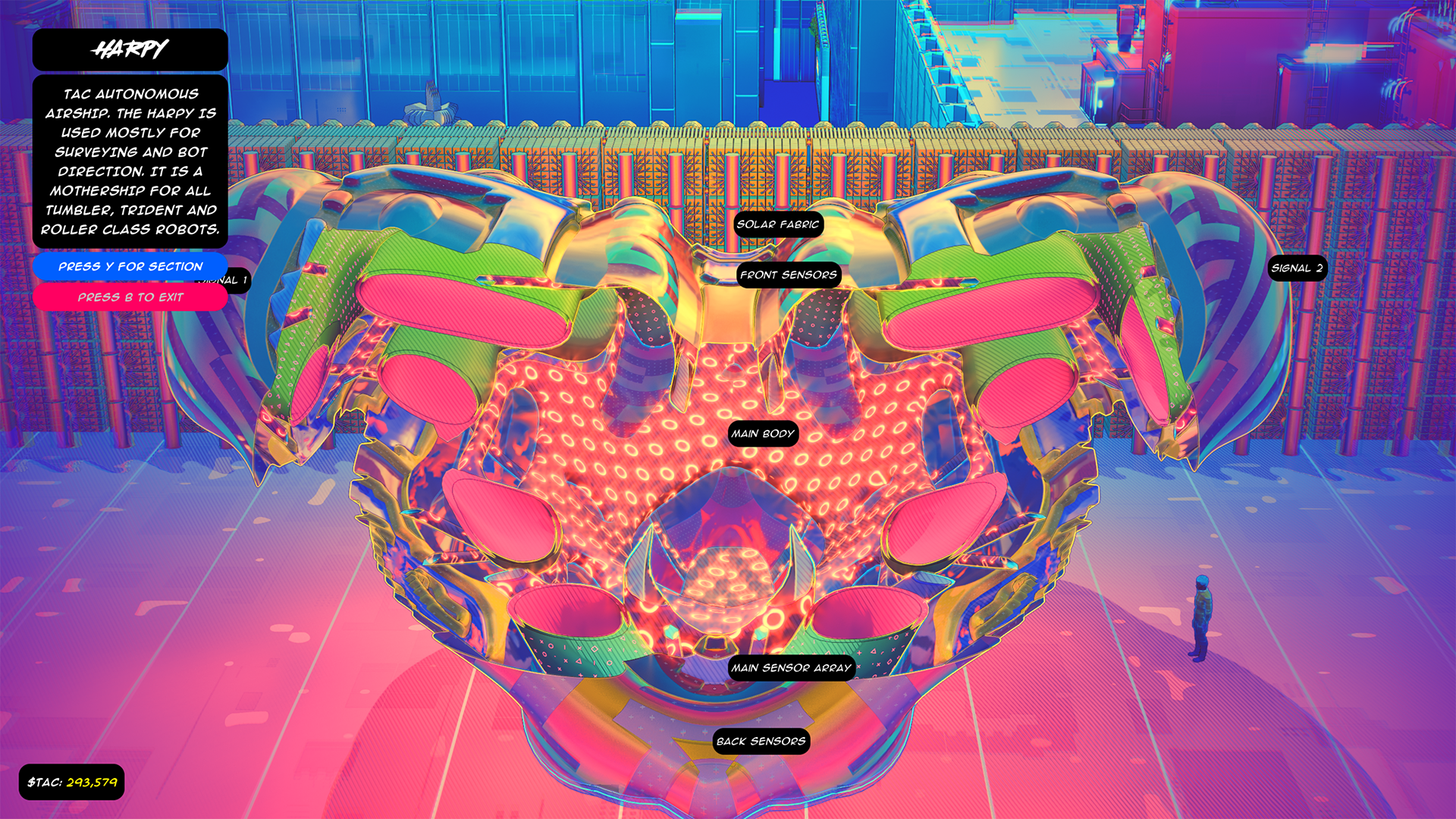

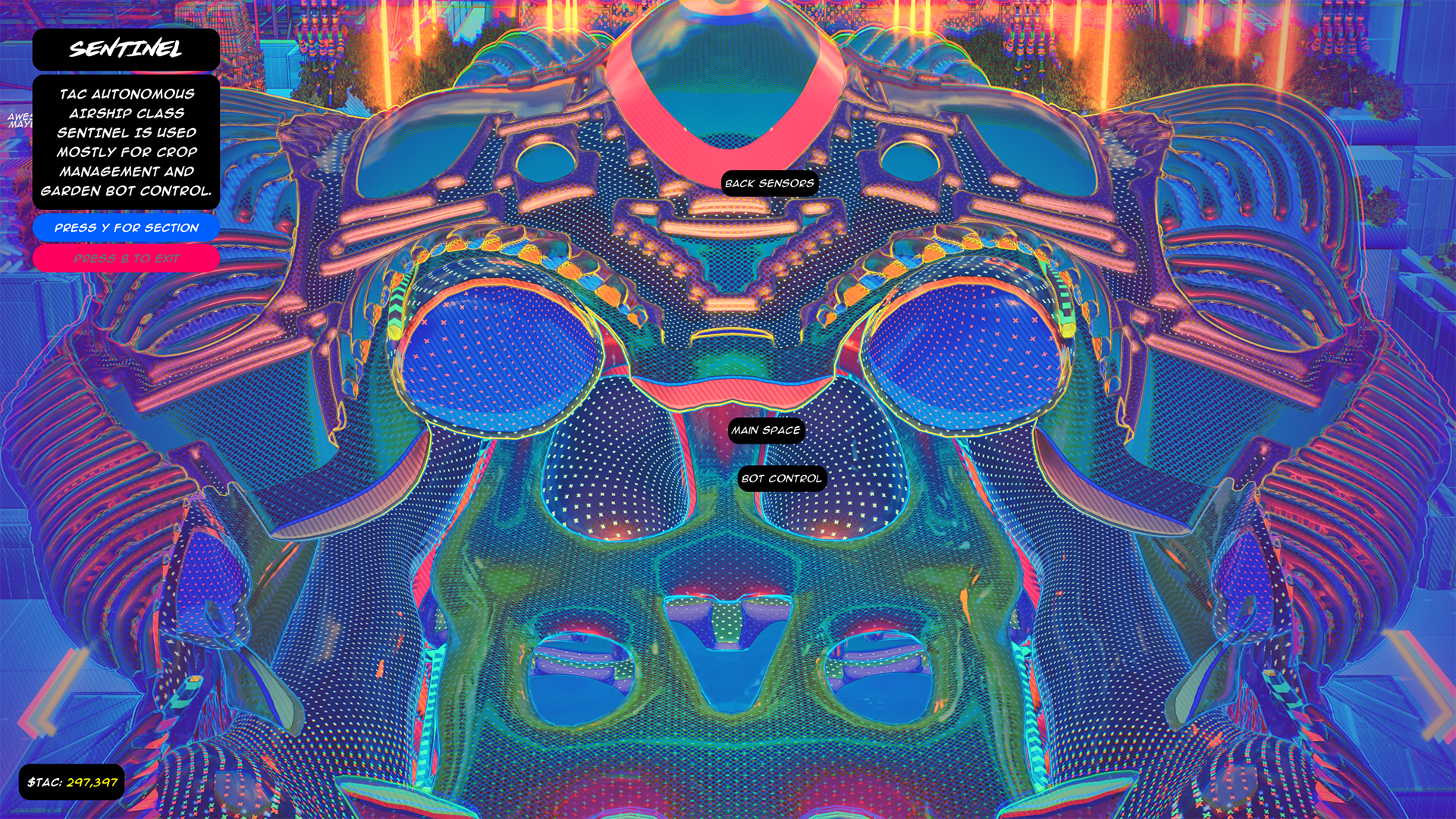


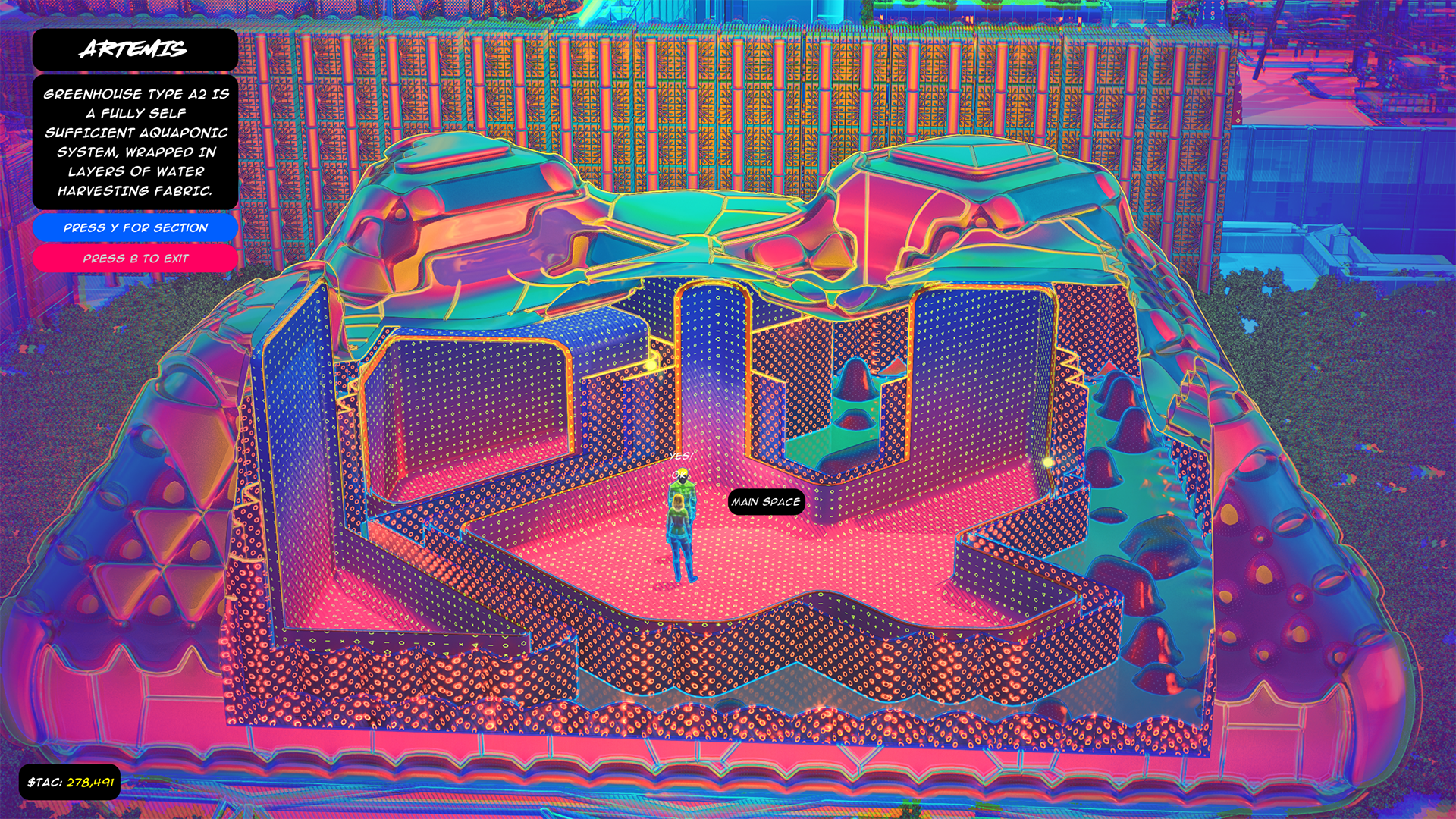
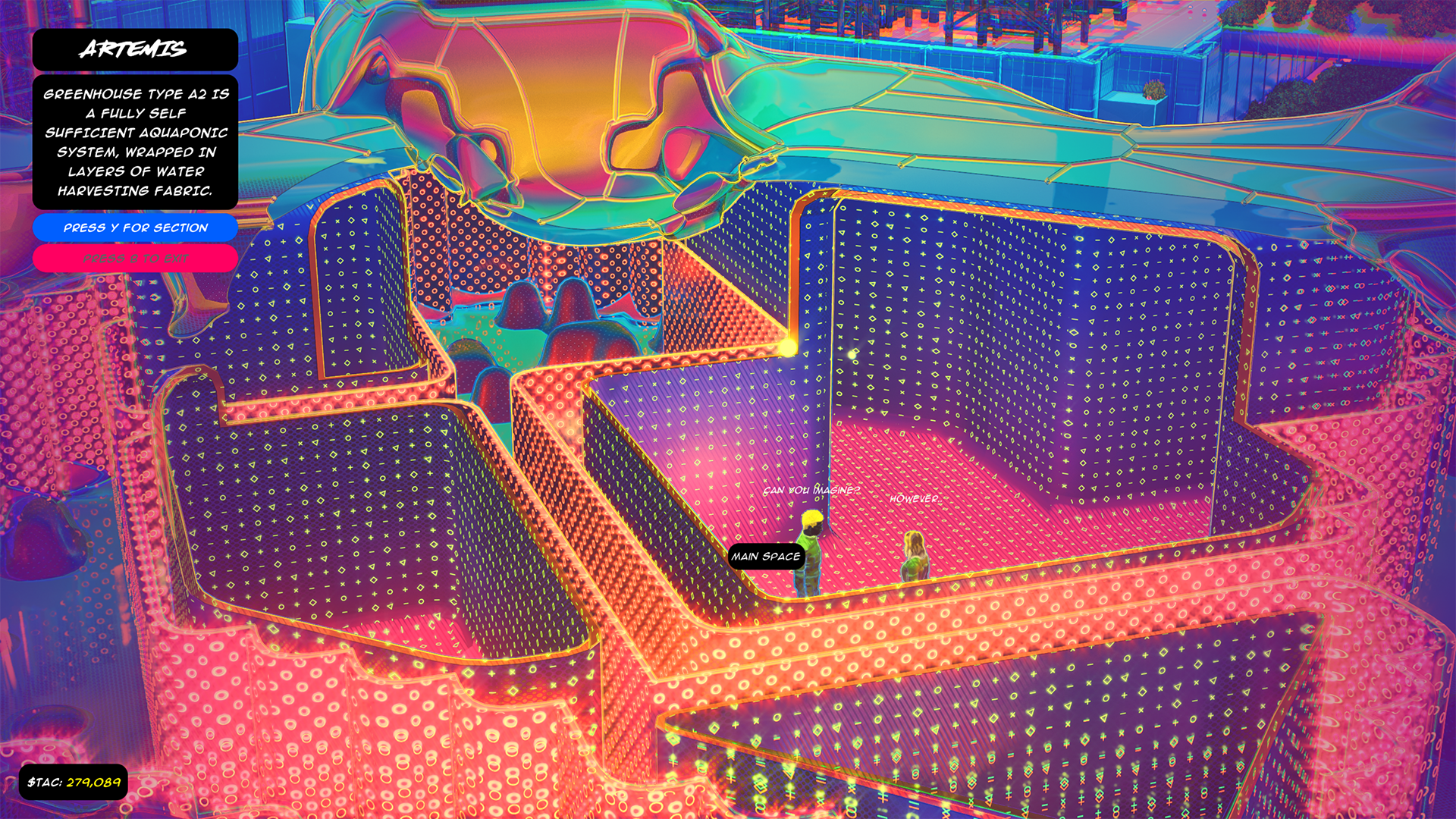


STUDIO LIFEFORMS
DAMJAN JOVANOVIC AND LIDIJA KLJAKOVIC LOS ANGELES, CALIFORNIA.
DAMJAN JOVANOVIC AND LIDIJA KLJAKOVIC LOS ANGELES, CALIFORNIA.

